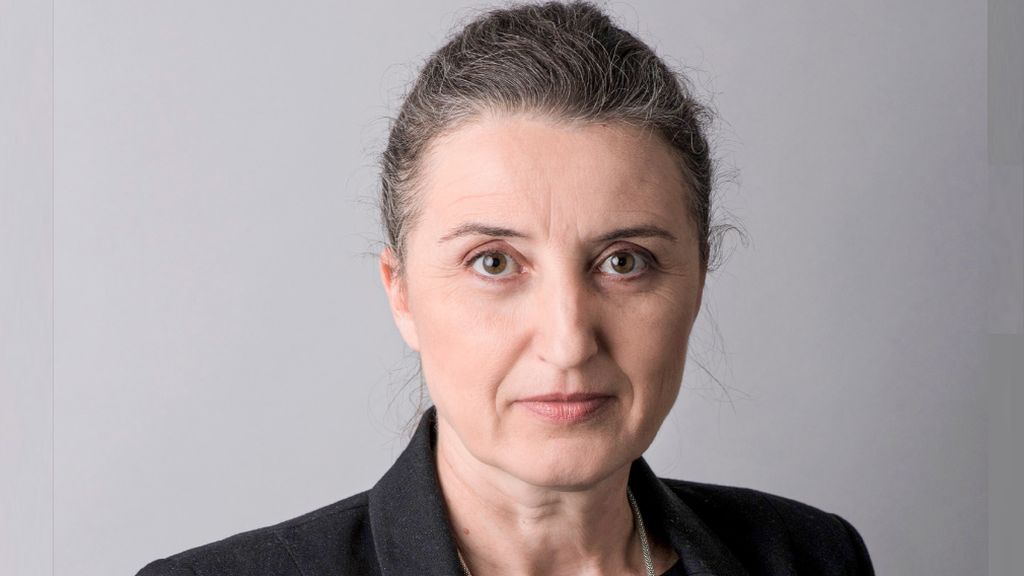Q: The pandemic crisis has brought a lot of changes in our lives and businesses. What has been your company’s dynamic for the first half of 2020 and how do you see its evolution for the near future?
A.B. As an executive search and leadership advisory firm we were impacted as many other industries by the pandemic crisis but, except the fact that all our meetings moved to virtual platforms the business was almost as usual. For us it was very easy because we were since more than 2 years completely paperless company, all our processes digitalized since technology has impacted every aspect of search especially in finding top talent and assessment.If the first half of the year brought a slow down of our business, less projects than the previous year, the second half is much more dynamic since companies are looking to fill in the leadership gaps within their organizations and even new roles are created to answer the needs of actual times.
Q: How complex is the job market disruption after the lockdown? What has changed?
A.B. The disruption created by the sanitary and economic crisis generated by the pandemic has led to a change of leadership roles within various sectors. However, these roles did not exist before as such so you need an excellent business understanding besides good tools to search for talent with a complex set of skills and competencies adapted to the actual context.For us, to be able to answer our clients’ needs, it is increasing importance of finding talents with global competencies using extensive networks. Being part of one of the top 10 executive search organizations in the world, InterSearch, helps a lot to find the most-suited candidates with the right skills by conducting searches on a far more international scale. Of course, that it generates a larger candidate pool and increases the complexity of the assessment process. Without early adoption of more complex and innovative search methods we would not have been able to remain a trusted advisor and deliver results fast.Selecting leaders via Zoom is a difficult decision therefore the processes getslonger until reaching a closing.
Q: Pendl & Piswanger Group is recognized as one of the most important HR providers in CEE, having large corporates as clients. What was their behavior until now? Is there any difference from what you experience locally?
A.B. Clients are now looking to search firms as strategic advisors who provide counsel on a broader basis, including assessing leadership teams, advising management teams on their effectiveness, succession planning and culture shaping as well as facilitating the onboarding process which we do add on to our core executive search services. Our profession requires much more agility, creativity, and business acumen to serve well its clients from different industries. In a volatile, ever-shifting business climate accelerated by pandemic, we have to be able to foresee the future of present roles and how leaders we place will be able to adapt fast and support their organizations in thriving in any market conditions. Companies all over the world, and we see more similarities than differences when comparing with all 60 markets InterSearch has presence, need leaders who are not having only a growth mindset but also own the qualities which are critical for them to care for people and ensure safety and trust in business recovery where is the case.Clients need more than ever “plug-In and play” solutions which makes our work even more focused on finding those talents fitting the present but also the future needs of organizations we work with. Just checking the boxes on fit per role is not enough since long and, the more volatile the economic environment gets, the more attention to ability to adapt, learn, unlearn and re-learn of leaders we place is crucial.
Q: Which are the top 5 priorities on your CEO agenda today? How the new economic reality will look for the HR industry?
A.B. 2020 is an interesting year and no one knows what the future will bring. Most CEO we discussed with through our global network recognized the pressure brought by pandemic, but many sensed an opportunity ahead. Their priorities start with transforming and digitalizing their companies because, we like to admit it or not, every company is a tech company, no matter the sector of activity. A second priority is spotting the trend and position themselves rather as trends setters in their industries than followers. Many CEOs are ready to jump in cold water and try the unknown to support the growth of their organizations despite the times we pass while increasing operational efficiencies. The race now is to win new customers and to keep the existing ones. Ensuring supply chain channels efficiency was and still is a priority of CEOs because we noticed that many companies are tending to rebuild their supply chains (mainly towards a more decentralized and resilient model)We saw in 2020 more and more the focus of many CEOs in promoting a purpose that serves the societyand most probably their action from this year will have a crucial impact on the results of years to come. Last, but not least, is CEO focus on security and safety of their people as well as strengthening the impact of compassionate leadership within their organizations. Nobody forgets, and CEOs the least, that business is still a people business. Retaining the best of talents, keeping a high level of engagement despite the odd times, mobilizing teams even when all or part of them are remote, all these CEOs are doing because they understand that companies need people and teams to feel belonged, energized and engaged to be able to perform and thrive. The key to achieve this is through explicit, continuous, and transparent communication.
Q: We are crossing a period full of challenges and changes. How do you prepare for a permanent shift in working relationships? How did remote work impact your activity and how do you see this evolution?
A.B. Clearly remote working is here to stay. We see decision taken in this direction in many companies, no matter their origin or industry. Even when the pandemic will end many employees will continue to work from home at least partially. Of course, despite the many benefits of WFH, there are different challenges for employees and organizations such how employees will learn new skills, how do you keep your company’s culture intact, how do you prevent your career development to be impacted when one of the keys for growth besides performance is internal networking, etc.. and work from home is not a fit for every sector of activity. If on short and medium term there are studies showing increases in productivity and job satisfaction, on longer termon longer term (more than 9 months) these positive impact decreases dramatically and leaders need to take into consideration these aspects.
In our case, because of our previous adopting technology and moving all processes online, moving quickly to an all-remote work did not pose any challenge to us. We are moving forward – taking care of our clients and candidates, about each other and focusing on our growth strategies. I am very proud of our team for adapting so quickly and seamlessly that no one from our clients or candidates even noticed. During this period we were giving webinars on different topics, with a focus on Diversity & Inclusion which is a point of high interest for us, supporting candidates in job hunting and companies in building recovery strategies.
This will continue along with flexible work arrangements and our commitment to the health and safety of our staff and partners (clients and candidates).
To make sure our team members don’t get affected by social isolation, we increased our employee communications via email, Teams and more frequent all-hands calls. We also implemented virtual activities to help our team deal with new anxieties and stressors and to also remain connected to each other and to the business. In June, we created a return to office playbook that includes differentiated schedules, guidance and mark-outs for physical distancing, available PPE, and “new rules for new times,“ required behaviors in spaces such as kitchens, conference rooms. So, started to come back to office partially.
Q: On the other hand, there are opportunities in every crisis. Which are the opportunities that this crisis has popped up for the HR industry?
A.B. One word: digitalization. Pandemic was / is an opportunity for HR to go through a major and fast business transformation. During this period HR contribution in their organizations increased I would say because most employees looked at HR to be shown the path ahead. From my point of view it is a great opportunity for HR to consolidate their already won place at the decision making table and influence how their organizations will look in the future. Best time ever for HR to shine!
Q: Indeed the crisis accelerated digital technology usage in every aspects of a business, including in HR. Which do you think is the next most important step in this process?
A.B. It is well known that HR is most probably the least digitalized area of a business, and more specifically, talking about our industry, it is also well known that executive search has not historically been among the most innovative or technology centered industries. Those who were not still in 2020 from technology point of view were forced to adopt new tech faster than anyone would have imagined. HR, including us, in executive search, need to understand and focus on customer satisfaction, positively influencing the entire customer experience cycle, if we really want to make a mark. If not, we will become irrelevant.
Q: What’s your „Focus on ...“ advice for the managers of local companies during this times dominated of uncertainty, in terms of human resources?
A.B. Focus on business sustainability and on people. Show (or learn to show) trust in future, awareness, empathy, and compassion. Believe in your people and you will see amazing results. I will end with one of my favorite quotes from Zig Ziglar: “ A lot of people have gone further than they thought they could because someone else thought they could.”
You can also consult the interview in the document below:


































